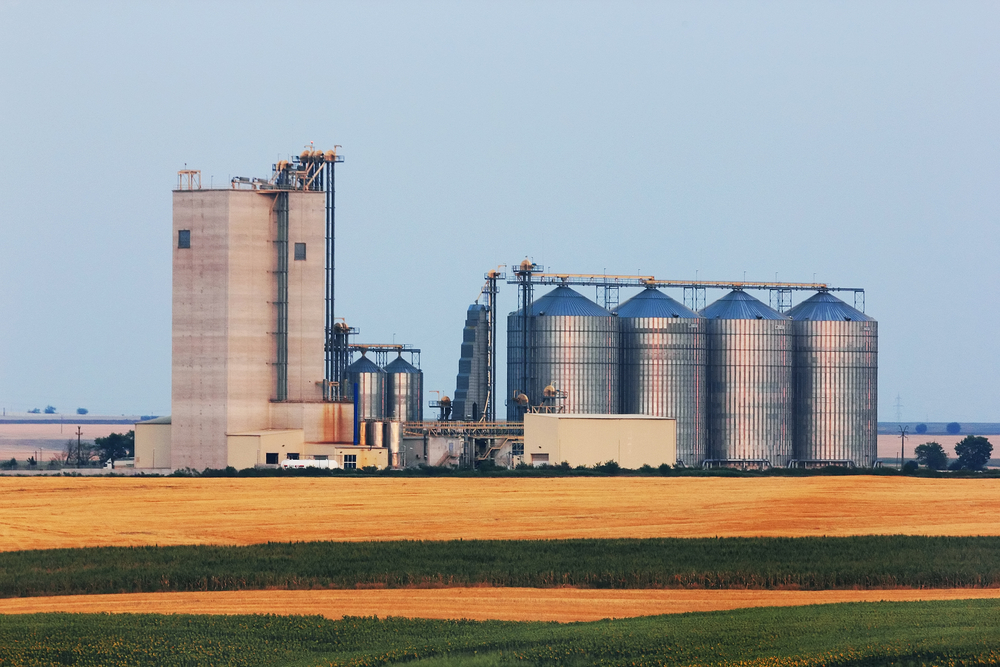An Illinois grain cooperative is facing a $629,946 Occupational Safety and Health Administration (OSHA) penalty for its failure to follow required safety procedures that contributed to a 27-year-old worker suffering a partial amputation of his right leg when a paddle conveyor was left running when he and two other employees entered a soybean bin for cleaning, the agency announced February 13.
OSHA cited Topflight Grain Cooperative, Inc., for four willful violations and one repeat violation at its Atlanta, Illinois, facility. The agency cited Topflight for failing to:
- Protect the three workers from falling into the sump holes.
- De-energize equipment or use lockout/tagout methods to prevent the conveyer from operating when workers entered the bin.
- Lock out/tag out the outside leg distributor to prevent grain from entering and engulfing the employees while they worked in the bin.
- Make sure the bin’s atmosphere was tested before the workers entered.
OSHA inspectors determined that the company violated the agency’s grain-handling safety and lockout/tagout regulations. OSHA’s control of hazardous energy—lockout/tagout—standard is one of the agency’s most frequently cited standards. OSHA cited 1,977 violations in fiscal year (FY) 2022.
Inspectors found the three employees were working over three unguarded holes in the bin above the conveyer when the incident occurred. The company failed to place a guard or cover over the holes above the equipment or utilize guardrails or travel restraint systems to protect the workers from falling into the equipment.
“Topflight Grain Cooperative Inc. could have prevented this terrible incident, and had been warned about the potential hazards of grain bins when OSHA cited the employer for similar hazards at another facility,” Bill Donovan, OSHA’s Chicago regional administrator, said in an agency statement.
Topflight received OSHA citations for similar violations at a different facility in 2021. According to OSHA, the farmer-owned grain cooperative based in Monticello, Illinois, serves grain producers in Champaign, Dewitt, Douglas, Logan, Macon, Moultrie, and Piatt counties.
OSHA has a regional emphasis program (REP) for grain-handling facilities in Illinois, Ohio, and Wisconsin. Through its alliance program, the agency also has partnered with the Grain Handling Safety Coalition, Grain Elevator and Processing Society, and National Grain and Feed Association to address hazards, reduce risks, and improve safety and health management systems to help prevent injuries and fatalities.
Pennsylvania tree service cited in 17-year-old’s fatality
Adam Atiyeh, the owner of Adam’s Tree Service and Adam’s Tree Removal and Trimming, is facing $136,613 in OSHA penalties after a 17-year-old worker suffered fatal injuries after being pulled into a woodchipper at a worksite near Allentown, Pennsylvania, the agency announced February 13.
The agency cited Atiyeh for 10 serious safety violations that included failing to:
- Provide personal protective equipment, including safety shoes, safety glasses, and gloves and hard hats, and make sure employees used them.
- Train workers to safely operate a woodchipper.
- Have personnel at the worksite with first-aid training.
- Maintain portable fire extinguishers at the worksite.
OSHA inspectors learned the worker was partially pulled into a woodchipper as he fed entangled material into the machine at a Schnecksville, Pennsylvania, worksite and later died from his injuries. Investigators were told the company had allowed three minor-aged workers to operate the woodchipper—a hazardous procedure forbidden by federal child labor laws.
“The dangers of tree-trimming and operating a woodchipper are obvious and widely known, and yet this employer exposed a teenager to deadly risks. Now his family, friends, and co-workers are left to mourn,” Jean Kulp, OSHA’s Allentown area office director, said in an agency statement.
One of OSHA’s economically significant rulemakings is a tree care industry standard proposal that the industry requested. The agency recently announced plans to issue a notice of proposed rulemaking (NPRM) in May.

